Reverse Thinking
Notes
Reverse thinking is when we flip our assumptions on a situation, and see how affects the outcome. For example, instead of asking ourselves "how likely are we to fail", which usually drives us towards over confidence, , we should ask "Let's assume we failed. What caused it?". The reverse thinking frees us from issues of Ego and biases, and in this "imaginary world" where we have already failed, we can focus our discussions complexly on the risks we face. Clean Slate.
To engage in reverse thinking is different from just "thinking more" about the subject, it's to rethink the situation entirely.
Rethinking should be framed as a simulation. When separating between "real world costs" and our thought experiment, we are more likely to be bold, critical and creative, discovering ideas and thoughts that were previously hidden from us.
"Flipping the script" is not easy. We are often entrenched in certain ways of thinking, which makes escaping it really hard. However, doing so can be a liberating experience. Once we reframe the situation, we feel differently, we think differently, as if we ourselves have changed.
It is similar to the The law of reverse effect, that in order to get something we often need to do the opposite of what we are doing now. If something feels hard and frustrating, perhaps we are doing it wrong. Perhaps we need to Solve the easier problem
Visual

Overview
🔼Topic:: behavioral psychology (Map) ↩️Origin:: 🔗Link::